Boheme Opera Presents Gounod’s “Faust” at TCNJ: A Faustian Bargain You’re Sure to Love
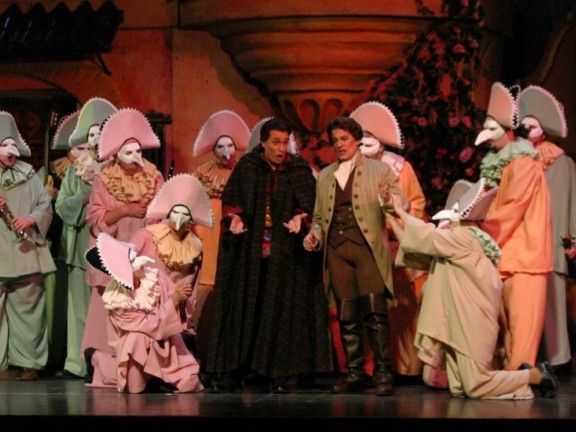
I have two things to confess:
I am one of those people who LOVES when the “Dreaded Opera Category” shows up on "Jeopardy!" (Even though the stakes are high: my husband always jokes that he’ll tell my co-workers if I make a mistake.)
For a few years, I was pretty much obsessed with Charles Gounod’s opera “Faust.” So writing this piece was a very welcome trip down memory lane.

So trust me when I say that you should consider going to see “Faust,” presented by Boheme Opera NJ at The College of New Jersey in Ewing on Saturday, April 20 at 7:00 p.m. or on Sunday, April 21 at 4:00 p.m.
You’ve probably read Goethe’s play, “Faust”(written in two parts: 1806 and 1831), at some point in school. And if you were an English or German literature major in college, you may have also read some of the other works based on this legend, including Christopher Marlowe’s “The Tragical History of Doctor Faustus” andThomas Mann’s “Doctor Faustus,” among a number of others.
Charles Gounod’s opera “Faust” is based on a French play that is based on the first part of Goethe’s play (though there is some debate about that). It premiered in 1859 at Théâtre Lyrique in Paris.
Yes, the opera is sung in French, but in case your français isn’t quite up to snuff, don’t worry: Boheme Opera’s production features projected English translations known as supertitles.
Speaking of translations, here’s a bit of trivia to share at your next cocktail party:
Q: What was the first opera ever performed at The Metropolitan Opera?
A: You guessed it: Gounod’s “Faust!” The date was October 22, 1883.
And, for extra credit:
Q: What language was it sung in?
A. Italian.
–Yup. Italian. In the 19th century it was fairly common to translate operas into the local language in Europe, meaning that “Faust” might be performed in German in Germany, Italian in Italy and French in France. But in the U.S., operas generally weren’t performed in English; Italian was the generally expected language of opera here, so it wasn’t unusual to translate a French-written opera into Italian for U.S. performances.
So, if you don’t remember the basic plot from reading Goethe’s play in school, here is what happens:
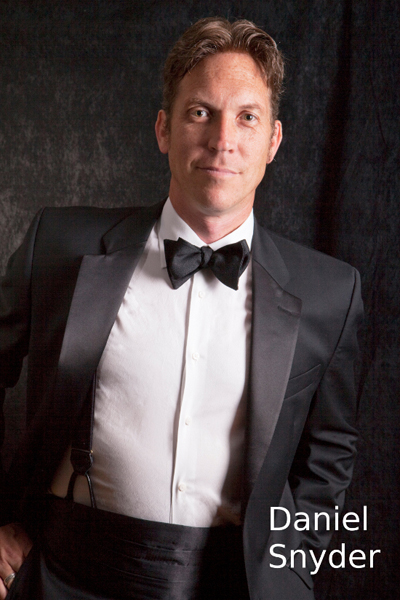
Faust is an aging scholar, who regrets having missed out on love as a younger man. He tries to poison himself when a demon, Méphistophélès, appears and shows Faust an image of a beautiful young woman, Marguerite (Gretchen in the Goethe). In exchange for turning Faust into a young man and helping him woo Marguerite, Faust agrees to serve the devil in hell.
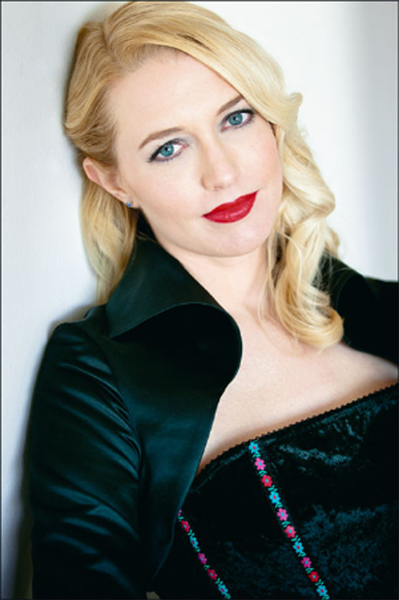
Jessica Renfro
Marguerite’s brother Valentin is preparing to leave for war with a number of other soldiers. There’s a really great drinking song here, called “Vin ou Bière.” Valentin asks the young Siébel–sung by a woman–to take care of Marguerite. (As is often the case in operas from this era, young male characters are sung today by female mezzo-sopranos in so-called “pants parts” or “breeches roles.” These roles were originally sung by castrati, or male singers castrated prior to puberty so that their voices never change.) Méphistophélès and Faust approach Maurguerite and Faust declares his admiration for her, but she demurs.
The young boy, Siébel, leaves some flowers on Marguerite’s doorstep and Faust has Méphistophélès leave a box of jewelry there, next to the flowers.
Marguerite appears and here we get the most famous aria in this opera – indeed, I’d say it’s the most famous music Gounod has written. This is the “Jewel Song” (“Ah! je ris de me voir si belle en ce miroir”) and it is a tour de force of amazing vocal pyrotechnics – a real showstopper.
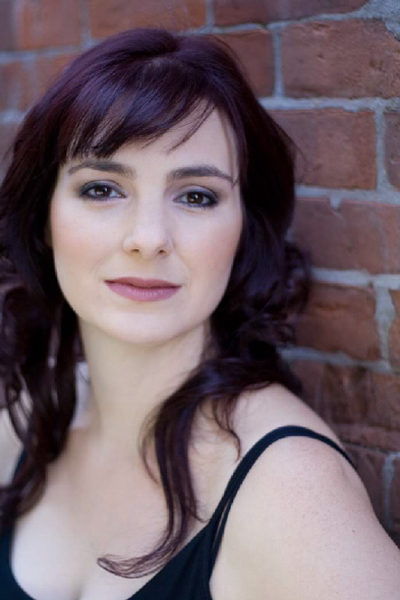
Kristen Vogel
Faust shows up to romance Marguerite in the garden and kisses her. Méphistophélès looks on, laughing malevolently, making it clear that Faust will seduce Marguerite.
In the next act, we learn that Marguerite has given birth to a child by Faust, though he has abandoned her and she is now a social outcast. Her brother, Valentin, comes home from war, as Faust and Méphistophélès reappear. Méphistophélès mocks Marguerite in the aria “Vous qui faites l'endormie.” (It’s a lot of fun to listen to a great bass-baritone generate those huge singing laughs.)
Valentin attacks Faust, and Méphistophélès aids Faust throughout, allowing Faust to kill Valentin. As he dies, Valentin renounces his sister and condemns her before the townspeople that have assembled.
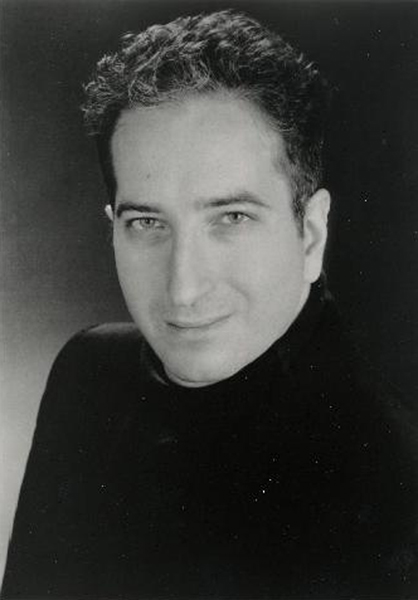
Daniel Sutin
This has made Marguerite go a little crazy. She gets imprisoned for killing her child. Méphistophélès helps Faust enter the prison to try and rescue her, but she decides to let God and his angels decide her fate. This exchange between Marguerite, Faust and Méphistophélès is the climatic, stirring highlight of the opera: “Anges purs, anges radieux.” Marguerite suddenly collapses, as a heavenly voice says that she is saved. Easter bells sound, a choir of angels sings that Christ has risen, and Marguerite’s soul ascends to heaven. Faust kneels and prays.
My first encounter with “Faust” came when I watched the 1990 TV movie version of “The Phantom of the Opera” –the drama, not the Andrew Lloyd Webber musical version—that features real opera excerpts, including significant passages from Gounod’s “Faust.” (The YouTube clip above of the final trio of “Faust” is from that TV movie.) Sure, the lip-synching is pretty bad, but the emotion is great. Watching this movie repeatedly through the early 1990s, as a teenager is wont to do, really made me fall in love with the music.
In 1997, I went to see “Faust” live for the first time at the Metropolitan Opera, in a new production with Richard Leech (Faust), Renée Fleming (Marguerite), Samuel Ramey (Méphistophélès) and Dimitri Hvorostovsky (Valentin) and conducted by Julius Rudel. Especially at that time, it was a dream cast.
Boheme Opera NJ, founded in 1981 by Joseph and Sandra Pucciatti, first formed its partnership with the College of New Jersey in 2011. (The Pucciattis both were music graduates of that school, back when it was Trenton State College.) This is the first time since the mid-1990s that Boheme Opera NJ has presented Gounod’s “Faust.” This production of the opera will feature new HD technology, including virtual sets and animation designed by J. Matthew Root. Joseph Pucciatti directs and conducts the performance.
Among the cast of Boheme Opera’s “Faust” are:
Tenor Daniel Snyder (Faust), who last season sang Cavaradossi in Boheme Opera’s production of “Tosca”and also sang in the very well-regarded world premiere of “Heart of a Soldier” by Christopher Theofanidis.
Soprano Kristin K. Vogel (Marguerite), who last year sang the role of Pamina in Boheme Opera’s “The Magic Flute.”
Bass-baritone Frank Basile (Méphistophélès), making his Boheme Opera NJ debut in this devilish role. Basile performs one of Méphistophélès arias, "The Song of the Golden Calf," in this video from the TCNJ Center for the Arts’ Brown Bag series.
Baritone Daniel Sutin (Valentin), who has sung a number of roles at Boheme Opera NJ over the last 10 years. I remember him singing a very nice Fenton, on very little notice, when he stepped into the role for an ill singer at Opera New Jersey’s performance of “Falstaff” in 2006 at the Richardson Auditorium in Princeton.
Mezzo-Soprano Jessica Renfro (Siébel), who sang the role of Hansel in “Hansel and Gretel” at Boheme Opera NJ last season.
Boheme Opera NJ presents Gounod’s “Faust” at The College of New Jersey Center for the Arts, Kendall Main Stage Theatre, located at 2000 Pennington Road, Ewing, NJ. Performances take place on Saturday, April 20 at 7:00 p.m. and Sunday, April 21 at 4:00 p.m. “Faust” is presented in 3 acts, with 2 intermissions; a total run time of about 2 hours and 30 minutes. A pre-performance talk on Faust, including its background, history, composer and musical themes, will be given by Boheme Opera NJ Artistic Director, Joseph Pucciatti, one hour prior to curtain. Faust will be sung in French, with English supertitles.
For tickets, visit www.tcnj.edu/boxoffice or call 609.771.2775, Monday through Friday, 10:00 a.m. to 2:00 p.m. and 6:00 p.m. – 8:00 p.m.



